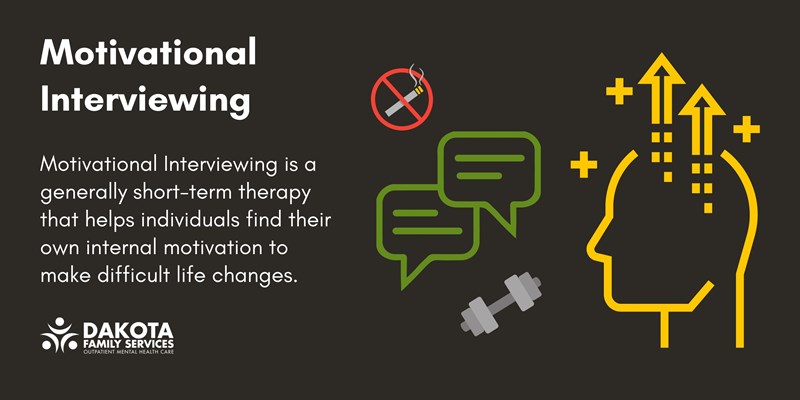Motivational Interviewing
Definition
Motivational interviewing is a method of therapy that helps people develop their own motivation to change unhelpful behaviors.
Goal of Motivational Interviewing
Rather than using facts and information to persuade patients to try new behaviors, motivational interviewing helps them come to the realization by themselves. The therapist empowers patients by asking questions that challenge them to confront the discrepancy between where they are, where they want to go, and why they've been avoiding change
Key Things to Know About Motivational Interviewing
- Motivational interviewing is generally short-term therapy that requires just one or two sessions, but it can be included as an intervention along with other longer-term therapies.
- According to Psychology Today, research has shown that motivational interviewing works well with people who start off unmotivated or unprepared for change.
- Motivational Interviewing can be used to address many presenting concerns, including addiction. It’s focused on helping people resolve ambivalent feelings and insecurities to find the internal motivation they need to change their behavior. It is a practical, empathetic, and short-term process that takes into consideration how difficult it is to make life changes.
What (or Who) Motivational Interviewing Can Help With
- Substance use disorder
- Smoking
- Weight loss
- Medication adherence
- Cancer care
- Diabetes care
- Health behaviors among children
Motivational interviewing techniques
- Express Empathy
- Support Self-Efficacy
- Roll with Resistance
- Develop Discrepancy


